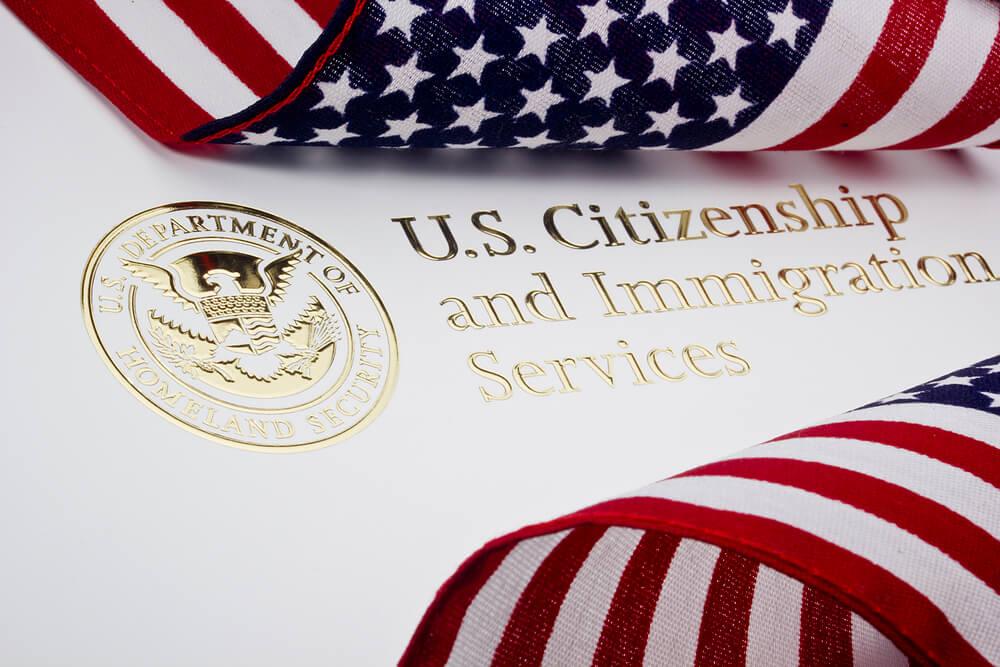U.S citizenship is sought after by many for a variety of reasons. People become citizens for various reasons; some want the privileges and protections of citizenship, while others prefer representing a particular country in international settings. When it comes down to it, for many people, it’s all about feeling secure in their everyday life. If you want to know if you can apply for citizenship in another nation for whatever reason, you may find out by looking at this list.

Types of Citizenship
First, we’ll have a look at the various U.S. citizenship options. The various forms of citizenship are as follows:
- Investment
Citizenship by investment programs is available in various nations. Investment type, the number of applicants, and other variables may cause the amount to differ from country to country.
- Constitutional Birthright Citizenship
If born in the country, you automatically qualify as a citizen. It makes no difference what country your parents were born in. If you were born in Brazil, you would automatically get Brazilian citizenship. That’s how it is in the U.S. too.
- Automatic Citizenship Through Descendancy
Citizenship through descent is possible if either parent is a citizen of that country or the individual was born abroad to a citizen of that country. Similarly, ancestors might obtain citizenship through their descendants.
- Gaining Citizenship Through Naturalization
If you meet the criteria for naturalization in a particular country, you may apply for citizenship there. This means that individuals can seek citizenship based on their own free will, provided that they meet specific legal requirements. This means that you intend to become a citizen of that country voluntarily.
Many people worldwide want to one day immigrate to the United States and establish a new life there, realizing the promise of the American dream. As a first step in their new lives in the United States, most immigrants seek and get a Green Card as permanent legal residents. However, becoming a U.S. citizen provides numerous advantages not available to Green Card holders.
Immigrants to the United States may pursue several different routes to citizenship. Naturalization, marriage to a citizen, ancestry, and military service are the four ways to obtain U.S. citizenship. Different paths to U.S. Citizenship have different, often stricter, requirements. This book will explain the several ways to apply for U.S. citizenship and help you choose the best one for your situation.
Green Card vs U.S. Citizenship: Key Distinctions
People issued Green Cards can live and work in the United States permanently without fear of deportation. You do not have to worry about any immigration restrictions, though if you plan to be away from the US for more than a year, you will likely need to apply to return. You can work, study, or retire in the United States in whatever capacity you see fit. It is possible to obtain Green Cards for immediate relatives.
However, those who obtain a Green Card still need to be granted the same legal protections and are not required to shoulder the same duties as U.S. citizens. U.S. citizens have all the rights afforded to permanent residents, including voting and receiving public funds. Still, they must also pay all applicable taxes and serve in the armed forces or on juries if called upon.
Do you require assistance in filing for U.S. citizenship?
Even though there are a variety of paths to U.S. Citizenship, doing so takes time and effort. Your application will be only allowed if you have the documentation to establish that you can fulfil all of the conditions for citizenship. For this reason, if you want to become a U.S. citizen, you should consult an experienced immigration attorney.
Suppose you want to become a U.S. citizen but need help figuring out how to do so. In that case, the attorneys can gladly explain the many pathways to citizenship in further depth and help you choose the one that’s right for you based on an evaluation of your eligibility under each choice.
Once you’ve settled on a course of action, attorneys will be there to see that you successfully apply for citizenship. They will help you complete the necessary paperwork and compile the evidence required to indicate you can apply for citizenship in the United States.
In what ways does becoming a U.S. citizen help one’s life?
To apply for citizenship, proof of loyalty to the United States and its laws is required. You’ll get a bunch of privileges and protections everyone else in the country receives.
The advantages of obtaining a certificate of citizenship in the United States include the following:
- Life and the pursuit of happiness are unrestricted.
- Freedom of assembly and expression Freedom to live and work where one chooses
- The privilege of participating in elections for public office
- protection of the right to a trial by an impartial jury
- Freedom of choice in federal elections
How Do I Start the Process of Applying for U.S. Citizenship?
The application process is straightforward. Accurately completing them is what makes them challenging. Here is a rough estimate of how long it takes to apply for U.S. Citizenship.
- Schedule a Biometrics Appointment and Return Form N-400
To apply for citizenship, you must first submit a completed Form N-400. Send in all required paperwork and fees. USCIS promises to respond to your application within one to two weeks.
In the vicinity of this time, you’ll also be asked to provide biometric information like your fingerprints, photo, and signature. To complete this procedure, you will need to schedule an appointment. About six to ten months will pass after you submit your application and biometrics for processing.
- During the Process of Testing and Interviewing for the U.S. Citizenship
Assuming everything goes smoothly, you’ll need to choose a date for your exam and interview, which will be held simultaneously. Between eight and twelve months after submitting your application, you can expect to take your exams and participate in your discussion. Even though this isn’t a difficult phase, you should still study hard to ensure a smooth test and interview.
- Pledge of Allegiance Ceremony
If you make it through the exam and the interview, the next step is to take the oath of allegiance. On average, this happens a year after the initial filing. To become a citizen of the U.S., one must first take an oath. Please don’t skip the pledge of allegiance; it’s a crucial component of the citizenship process that many individuals, in error, dismiss as unimportant.
When do you have to be a U.S. citizen?
You must fulfill the following criteria to apply for U.S. Citizenship:
- Must be over the age of 18
- Be a Green Card holder who has been living in the US for a minimum required period.
- Be able to demonstrate your “excellent moral character” Have a permanent place of residence in the same state or district to which you seek to apply.
- Show that you have a company grasp of English and an understanding of American culture and history.
- Pledge allegiance to the United States Constitution.
How to Proceed After Becoming a Citizen?
I hope you enjoy your newfound freedom as an American citizen. The United States Citizenship and Immigration Services suggests the following steps once citizenship has been obtained:
- Please submit your application for a passport or passport card immediately. An application will be provided to you at the ceremony, or you can obtain one from any post office in the United States.
- Become a registered voter.
- After ten days, contact your local Social Security office to have any changes made to your profile.
Am I eligible for dual U.S. citizenship?
Gaining citizenship in two nations allows you to participate fully in the life of each. U.S. citizens are permitted by law to hold citizenship in more than one country. This means that acquiring U.S. Citizenship does not necessitate relinquishing any other citizenship. Nonetheless, it’s important to remember that the laws of both countries must permit dual citizenship to obtain it.
It is also important to remember that if you have dual citizenship, you must pay U.S. taxes on any money you receive, no matter where you are. Consequently, you may have to file tax returns for the same income in the United States and your other country of citizenship.

The inability to properly translate documents is a common obstacle for candidates in the citizenship procedure. Our document translation for a green card application is here to help. Working with a qualified translator can simplify the process of translating the necessary paperwork. We will provide the best translation services for the required documents or for your immigration or U.S. citizenship procedure.




